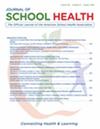A Review of School Connectedness: Definitions, Antecedents, and Psychological Outcomes
Abstract
Background
There is extensive research on the importance of school connectedness (SC). However, studies vary in how SC is operationalized, and little work has investigated factors that promote SC or how it relates to psychological outcomes, especially positive ones.
Method
This study includes a narrative review of the definitions/operationalizations, theoretical foundations, and predictors of SC as well as a systematic review of 90 empirical articles that assessed at least two components of SC (i.e., school attachment/belonging, teacher attachment, peer attachment) and at least one of seven psychological outcomes (i.e., mental health, depression, anxiety, suicidal ideation/behavior, well-being, resilience, self-esteem) as a dependent variable.
Results
Both individual and school factors can promote SC. SC relates to both positive adjustment and psychopathology; less is known regarding SC and positive adjustment relative to psychopathology.
Conclusions
SC should be conceptualized as a multi-component construct, with three key components: school attachment/belonging, teacher attachment, and peer attachment (especially with prosocial peers). Given that SC relates to multiple aspects of student mental health, it is an important target for promoting students' well-being.

 求助内容:
求助内容: 应助结果提醒方式:
应助结果提醒方式:


